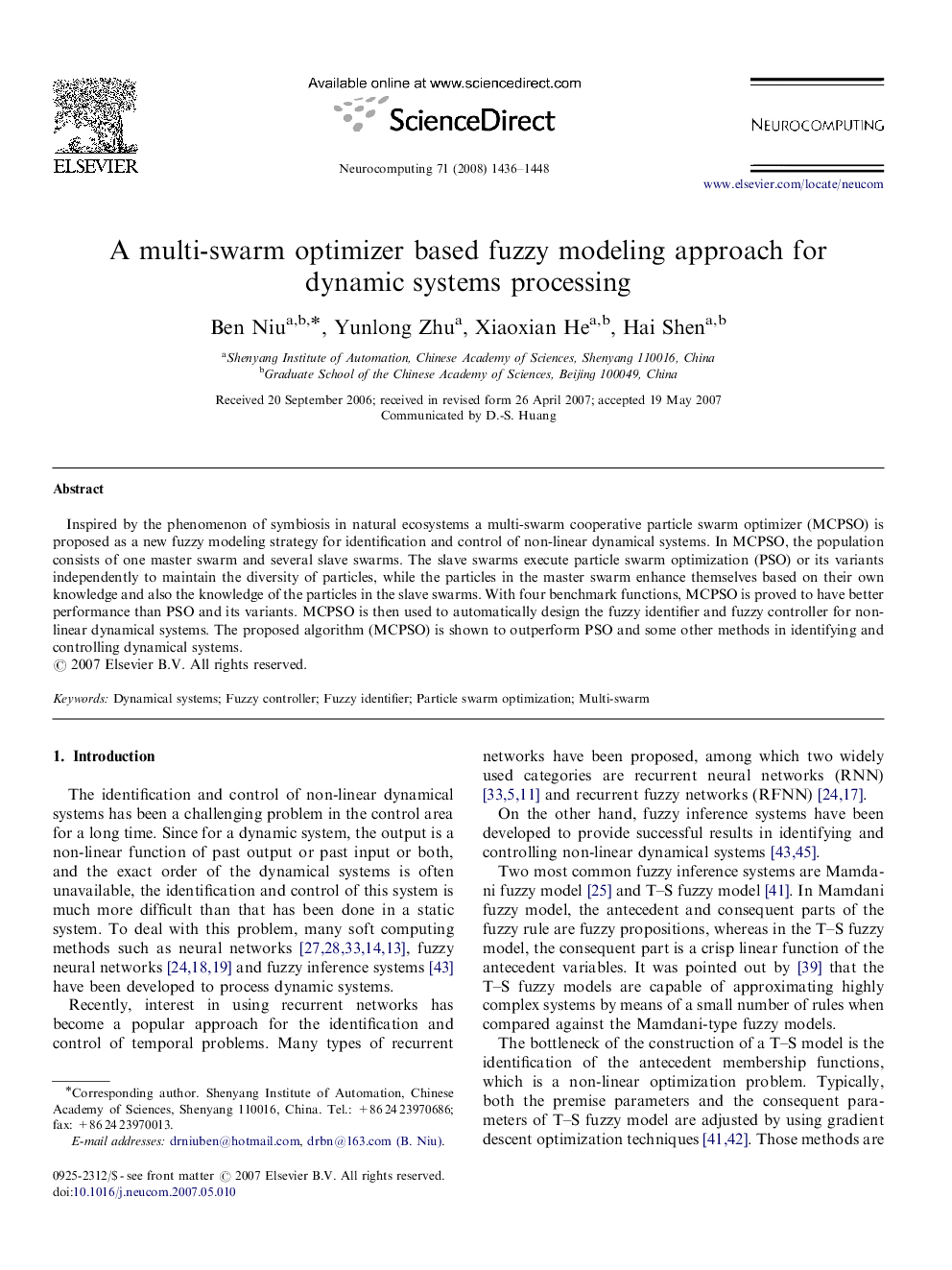| Article ID | Journal | Published Year | Pages | File Type |
|---|---|---|---|---|
| 409148 | Neurocomputing | 2008 | 13 Pages |
Inspired by the phenomenon of symbiosis in natural ecosystems a multi-swarm cooperative particle swarm optimizer (MCPSO) is proposed as a new fuzzy modeling strategy for identification and control of non-linear dynamical systems. In MCPSO, the population consists of one master swarm and several slave swarms. The slave swarms execute particle swarm optimization (PSO) or its variants independently to maintain the diversity of particles, while the particles in the master swarm enhance themselves based on their own knowledge and also the knowledge of the particles in the slave swarms. With four benchmark functions, MCPSO is proved to have better performance than PSO and its variants. MCPSO is then used to automatically design the fuzzy identifier and fuzzy controller for non-linear dynamical systems. The proposed algorithm (MCPSO) is shown to outperform PSO and some other methods in identifying and controlling dynamical systems.
